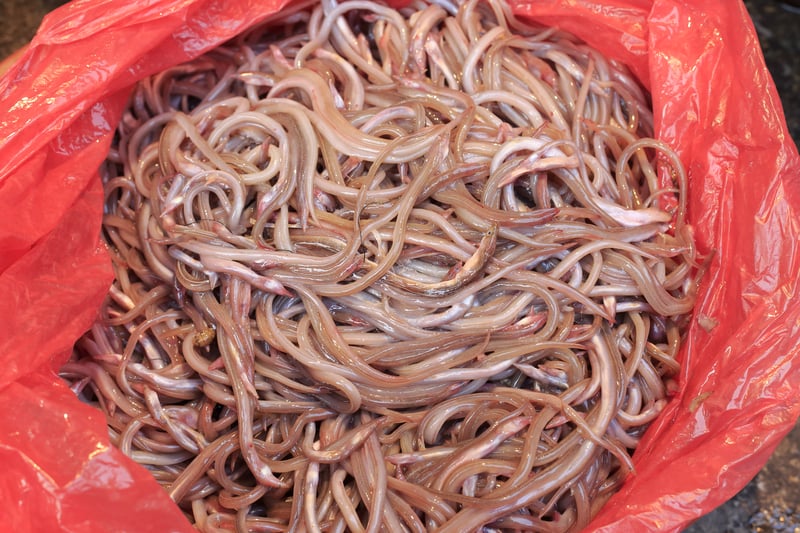In Puerto Rico, San JuanThis week, two Dominican citizens were found guilty of illegally capturing young American eels, also called glass eels, and trying to import them into the Dominican Republic from Puerto Rico. The goal of the project was to capitalize on the demand for the endangered species, which are highly prized in foreign markets.
Judge Aida M. Delgado-Col of the U.S. District Court sentenced 56-year-old Simón De la Cruz Paredes to 24 months in prison and two years of supervised release on November 14. The U.S. District Court for the District of Puerto Rico handed down the same punishment to 39-year-old Sa l Enrique Jos De la Cruz on Thursday.
The two spent months collecting the baby eels from waterways close to Levittown, Puerto Rico, according to court filings. While the defendants readied a boat for the return trip to the Dominican Republic, the eels were kept alive with the use of specialist oxygenation apparatus. They left Puerto Rico on February 21 with a revolver, hundreds of rounds of ammo, and 30 kilograms of glass eels worth $132,000.
About 40 miles out from Puerto Rico, the sailors disobeyed a stop order, and the U.S. Coast Guard intercepted the ship. After arresting the defendants and disabling the boat’s engines, Coast Guard officials indicted them on charges of smuggling, wildlife trafficking, and resisting a lawful stop. When brought to adulthood, the eels might sell for over $1 million, according to authorities.
In Asia, where they are produced for sushi and other culinary applications, juvenile American eels are an essential resource for aquaculture facilities. However, overfishing and illicit collection have caused their populations to decline worldwide. According to Justice Department Assistant Attorney General Todd Kim, juvenile or glass eels are essential to this food production. The American eel population is currently suffering greatly as a result of its frequent illicit harvesting, which has already severely reduced their numbers in Europe and Japan.
Because of its life cycle, the American eel is particularly susceptible to overfishing. The species migrates to freshwater systems, such the rivers of Puerto Rico, to mature after being born in the Sargasso Sea in the Atlantic Ocean. The young eels, sometimes known as glass eels, are highly sought after for international trade since the species cannot reproduce in captivity.
NOAA and the U.S. Fish and Wildlife Service spearheaded the joint investigation, with support from Puerto Rican law enforcement, the U.S. Coast Guard, and Customs and Border Protection. Authorities underlined the need of safeguarding the species and making sure that rules pertaining to wildlife conservation are followed.
Acting Assistant Director Paige Casey of NOAA’s Office of Law Enforcement stated that this unlawful action endangers fair trade markets and disturbs marine ecosystems. Additionally, W. Stephen Muldrow, the District of Puerto Rico’s U.S. Attorney, The survival of numerous endangered species is in risk due to the illicit wildlife trafficking industry.
The punishment demonstrates the ongoing work of U.S. agencies to prevent the exploitation of endangered species and safeguard the natural resources of the area.
Note: Every piece of content is rigorously reviewed by our team of experienced writers and editors to ensure its accuracy. Our writers use credible sources and adhere to strict fact-checking protocols to verify all claims and data before publication. If an error is identified, we promptly correct it and strive for transparency in all updates, feel free to reach out to us via email. We appreciate your trust and support!




